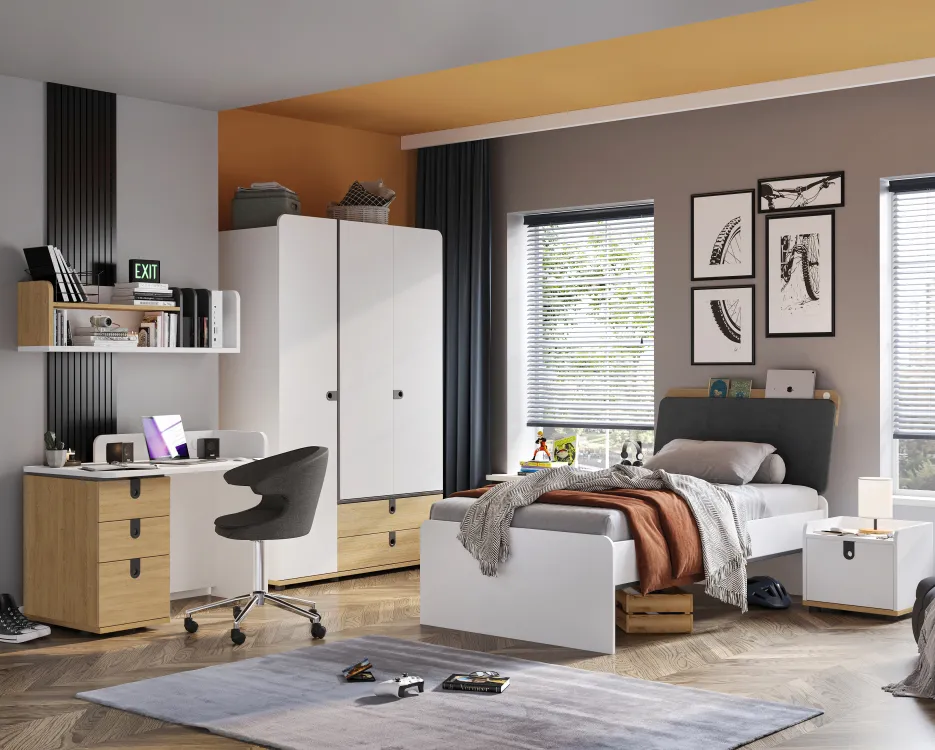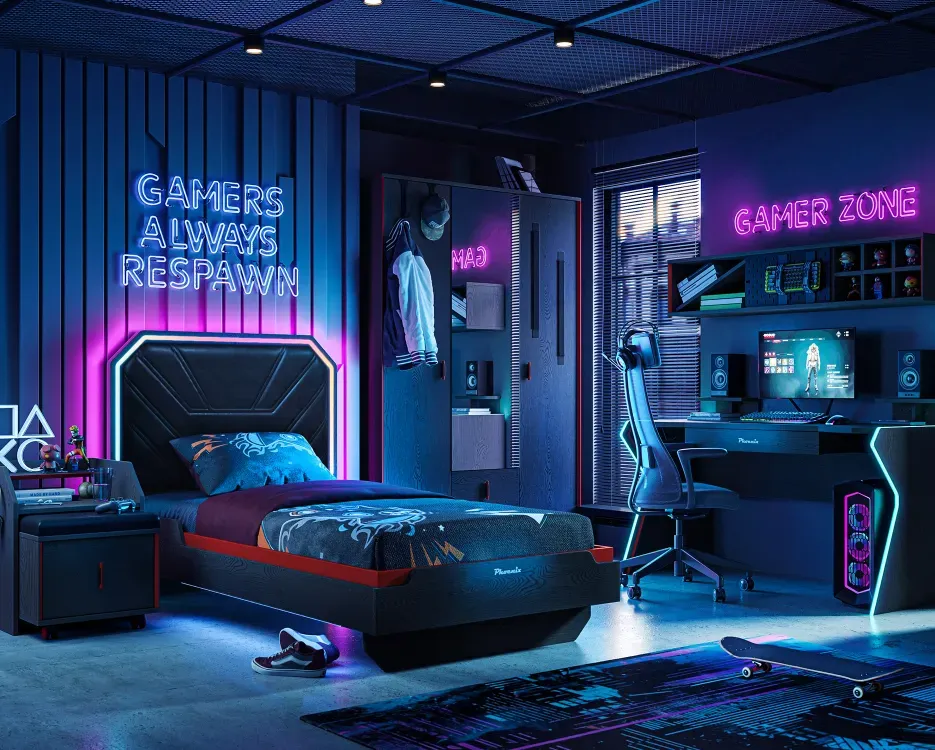1. Create Functional Spaces
A teen's room should serve as both a place for sleep and study. Therefore, it is crucial to create a functional and practical layout. Key elements such as the bed, desk, and storage areas define the room’s functionality. A comfortable desk for studying, ample storage, and an appropriate sleeping area design ensure that the room is functional. Additionally, creating spaces for different activities will make the room even more useful.
2. Aesthetic and Personal Style
It is important to make the room personal for teens. The room’s decoration should reflect the teen’s character and tastes. Colors, wall decorations, and furniture choices set the overall tone of the room. By considering the teen’s favorite colors and style, you can create an aesthetic environment that will appeal to them. However, it's important to maintain balance in the design. Overcomplicated colors and decorations should be avoided, as this can help create a calming and relaxing atmosphere.

3. Storage and Organization
Organization is key in a teen room. Books, clothes, toys, and other belongings should be stored neatly. Closets, shelves, and drawers are essential for keeping things in order. Additionally, practical solutions such as under-bed storage or wall-mounted shelves can make the room feel more spacious and functional. A well-organized room not only encourages teens to take better care of their space but also helps organize their minds.
4. Lighting and Natural Light
Lighting is a factor that should not be overlooked in teen room design. Proper lighting allows teens to feel comfortable both while relaxing and studying. Natural light helps create a fresher and more positive atmosphere in the room. Ensuring that daylight enters the room is important for teens' mental health. Additionally, offering various lighting options, such as night lights or desk lamps, strengthens the functional aspect of the room.
5. Technological Requirements
Today, teens have a great interest in technology. Therefore, it’s important to ensure that technological devices can be used comfortably in the room. Appropriate spaces should be created for devices like a computer desk, TV unit, or music system. However, it's important to balance technology and avoid overcrowding the room. By considering how teens engage with technology, it’s crucial to leave space in the room where they can move around freely.
In conclusion, teen room design should combine both aesthetics and functionality. Rooms that meet teens' needs, reflect their personal style, and maintain order are crucial for their healthy development and daily life. Teen rooms that offer both a relaxing and motivating environment will become spaces that contribute positively to their lives.

